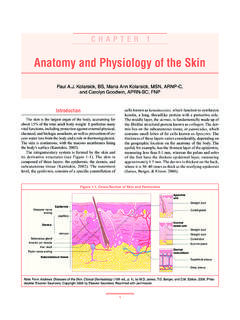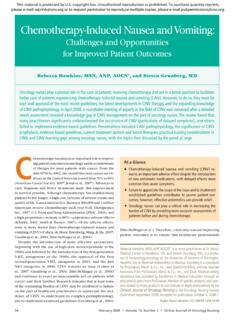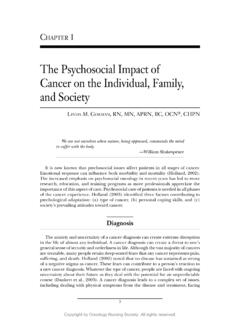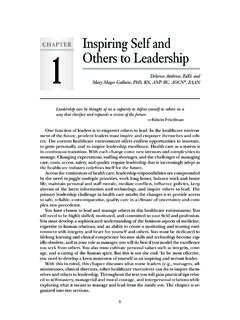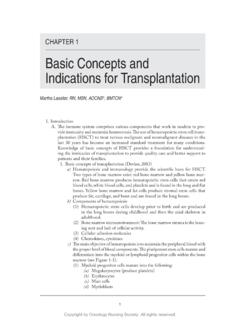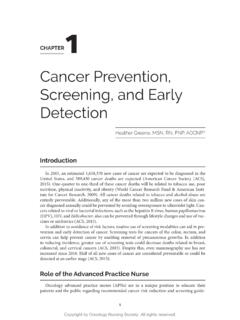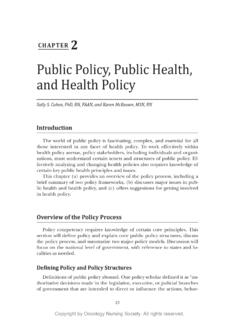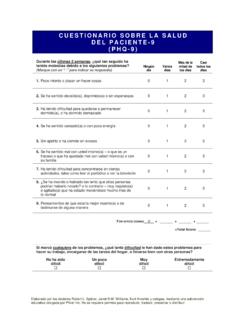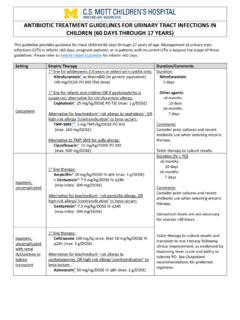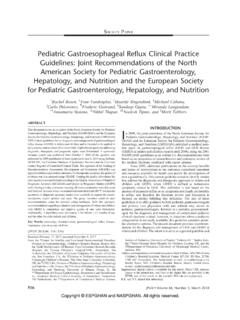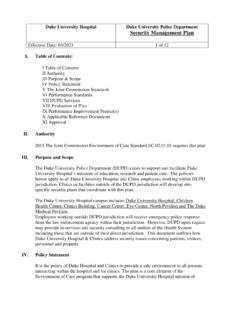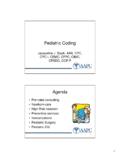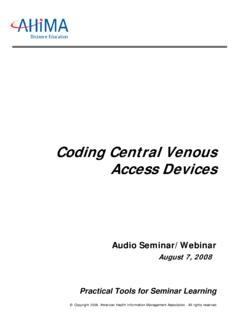Transcription of 2016 Updated American Society of Clinical Oncology/ …
1 ONCOLOGY NURSING FORUM VOL. 44, NO. 1, JANUARY 2017 12016 Updated American Society of Clinical Oncology/ Oncology Nursing Society Chemotherapy Administration Safety Standards, Including Standards for pediatric OncologyMichael N. Neuss, MD, Terry R. Gilmore, RN, Kristin M. Belderson, DNP, Amy L. Billett, MD, Tara Conti-Kalchik, MSN, Brittany E. Harvey, Carolyn Hendricks, MD, Kristine B. LeFebvre, MSN, Pamela B. Mangu, MA, Kristen McNiff, MPH, MiKaela Olsen, RN, Lisa Schulmeister, MN, Ann Von Gehr, MD, and Martha Polovich, PhD, RNADVANCED PRINT EXCLUSIVE ARTICLEP urpose: To update the American Society of Clinical Oncology (ASCO)/Oncology Nursing Society (ONS) Chemotherapy Administration Safety Standards and to highlight standards for pediatric : The ASCO/ONS Chemotherapy Administration Safety Standards were first published in 2009 and Updated in 2011 to include inpatient settings.
2 A subsequent 2013 revision expanded the standards to include the safe administration and management of oral chemotherapy. A joint ASCO/ONS workshop with stakeholder participation, including that of the Association of pediatric Hematology Oncology Nurses and American Society of pediatric Hematology/Oncology, was held on May 12, 2015, to review the 2013 standards. An extensive literature search was subsequently conducted, and public comments on the revised draft standards were : The Updated 2016 standards presented here include clarification and expansion of existing standards to include pediatric oncology and to introduce new standards.
3 Most notably, two-person verification of chemotherapy preparation processes, administration of vinca alkaloids via minibags in facilities in which intrathecal medications are admin-istered, and labeling of medications dispensed from the health care setting to be taken by the patient at home. The standards were reordered and renumbered to align with the sequential processes of chemotherapy prescription, preparation, and administration. Sev-eral standards were separated into their respective components for clarity and to facilitate measurement of adherence to a : As oncology practice has changed, so have chemotherapy administration safety standards.
4 Advances in technology, cancer treatment, and education and training have prompted the need for periodic review and revision of the standards. Additional information is available at institutions: Vanderbilt Ingram Cancer Center, Nashville TN; American So-ciety of Clinical Oncology, Alexandria, VA; Children s Hospital Colorado, Aurora, CO; Dana-Farber Cancer Institute/Boston Chil-dren s Cancer and Blood Disorders Center, Boston, MA; The Breast Center, Bethesda, MD; Oncology Nursing Society , Pittsburgh, PA; Sidney Kimmel Comprehensive Cancer Center, Baltimore, MD; New Orleans, LA; The Permanente Medical Group, San Jose, CA; and Byrdine F.
5 Lewis School of Nursing and Health Professions, Atlanta, GA Neuss, Gilmore, Belderson, Billett, Conti-Kalchik, Harvey, Hendricks, LeFebvre, Mangu, McNiff, Schulmeister, and Von Gehr have no financial relation-ships to disclose. Olsen has had consultant or advisory roles with Fresenius Kabi and Becton Dickinson. Polovich has received honoraria from Becton Dickinson. Neuss and Gilmore contributed to the conceptualization and design. Harvey and Mangu provided administrative support. Neuss, Gilmore, LeFebvre, Mangu, and Harvey completed the data collection.
6 All authors provided the analysis and contrib-uted to the manuscript preparation. Reprinted with permission from the Ameri-can Society of Clinical Oncology. Gilmore can be reached at with copy to editor at Keywords: chemotherapy administration; guidelines; safety; standards; pediatric ; oncologyONF, 44(1), A1 A13. doi: IntroductionAs oncology providers continue to try to improve, the Oncology Nursing So-ciety (ONS) and the American Society of Clinical Oncology (ASCO) have aspired to provide standards to minimize the risk of errors in chemotherapy ordering, preparation, and administration, including both oral1 and parenteral therapy, in both the outpatient2 and inpatient3 settings.
7 This paper updates previous ASCO/ONS Chemotherapy Administration Safety Standards. Betsy Lehman, an award winning health journalist, died on December 3, 1994, after receiving an inappropriately high dose of cyclophosphamide chemotherapy for breast As her mother later said in the foreword to The Patient Safety Handbook, this aggrieved mother sees in the grim national numbers the sweet young face of a beautiful and talented daughter who left behind two children suddenly bereft. 5 Medication errors account for half of the preventable Downloaded on 11 21 2016.
8 Single-user license only. Copyright 2016 by the Oncology Nursing Society . For permission to post online, reprint, adapt, or reuse, please email VOL. 44, NO. 1, JANUARY 2017 ONCOLOGY NURSING FORUM errors that occur in up to one in four patients who are Prompted by the tragedy of Ms. Lehman s death, oncology health care providers have been systematically working to improve the safety of chemotherapy administration since at least December 2015, a 49-year-old man died as a re-sult of a chemotherapy overdose, two decades after attention was first focused on chemotherapy admin-istration safety Despite significant effort and intention, errors in the course of chemotherapy administration remain problematic.
9 In a survey, 63% of nurses who administer parenteral chemotherapy reported personal knowledge of medication errors. Of 140 total errors described, medication errors fell into such categories as underdosing and overdosing, schedule and timing errors, administration of incor-rect drugs, infusion rate errors, omission of drugs or hydration, improper preparation of drugs, and chemotherapy administered to the wrong patients. Stress, understaffing, lack of experience, and unclear orders were cited as factors believed to contribute to the occurrence of As chemotherapy-related errors are intercepted at rates of approximately 2% 5%,10-12 it is important to note that some types of errors are virtually un-discoverable without continuous monitoring of the preparation process.
10 For example, a person who pre-pares drugs may select from the wrong drug supply and accidentally substitute one drug vial for another. Similarly, during batch preparation, labels can be incorrectly applied to containers of prepared update of the ASCO/ONS Chemotherapy Ad-ministration Standards began with a formal system-atic literature review. For the first time, the standards were expanded to specifically address chemotherapy safety for pediatric patients. In addition, the stan-dards have been modified in two ways for this revi-sion. First, to add clarity, each standard has been written to cover a single principle.
